Stories

Sep. 25, 2020
Remembering the Legacy of Dr. William Danforth
The passing of William H. “Bill” Danforth, M.D., last week at age 94 brought to the spotlight his work in academic administration, medicine and science, and outreach in the St. Louis area. His contributions also can be felt here at the University of Missouri. Dr. Danforth, chancellor emeritus of Washington University, was the founding chairman of the Donald Danforth Plant Science Center (DDPSC). Mizzou, including the Division of Plant Sciences in the College of Agriculture, Food and Natural Resources (CAFNR), and the Interdisciplinary Plant Group (IPG), has had a long partnership with the Donald Danforth Plant Science Center. In 1998…
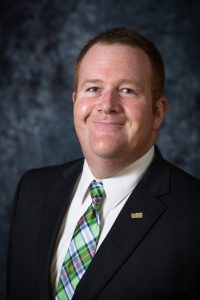
Sep. 22, 2020
John Tummons Receives 2020 NAAE Region IV Outstanding Service Citation
John Tummons, assistant agricultural education and leadership teaching professor, received the 2020 Region IV Outstanding Service Citation from the National Association of Agricultural Educators (NAAE) earlier this summer. The award, sponsored by Goodheart-Willcox, recognizes those who have provided services to agricultural educators, agricultural programs or agricultural student organizations and have attained leadership in professional organizations.

Sep. 22, 2020
Michael Cook Receives Best Paper Award for Co-Authored Study
Michael Cook, agricultural and applied economics professor and Partridge Chair of Cooperative Leadership, co-authored a study that received a Best Paper, Strategy Division award at the Academy of Management 2020 annual meeting in August. The paper, titled “From Instrumental to Normative Relational Strategies: A Study of Open Buyer-Supplier Relations,” takes a case study approach to examine the open vertical and horizontal relational strategy used by Natura, a company in the cosmetic industry.
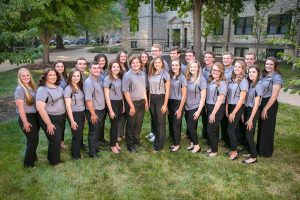
Sep. 16, 2020
Developing Student Leaders
Nearly a decade ago, and just one year into his teaching career at the University of Missouri, Jon Simonsen traveled with a handful of MU College of Agriculture, Food and Natural Resources (CAFNR) faculty and administrators to Chillicothe, Mo. The purpose of the trip was to meet with board members of the Jerry Litton Family Memorial Foundation, which was created in 1976 after the tragic passing of Jerry, his wife and their two children. Over the years the Foundation has supported the development of future leaders in the agricultural industry and beyond. CAFNR was interested in partnering with the Foundation…
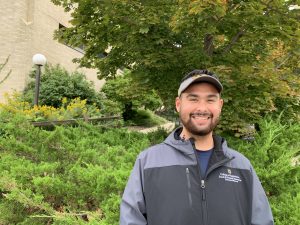
Sep. 11, 2020
Q&A With Alex Munoz
What are your job duties/job responsibilities in the College of Agriculture, Food and Natural Resources? I’m the student support specialist for the Division of Plant Sciences where I am the main point of contact for prospective students who are interested in our programs. I work to help with Division of Plant Sciences’ recruitment and outreach efforts as well as help with general recruitment for CAFNR. During normal times, I would be on the road visiting schools, college fairs and hosting visitors to campus. On top of this, I run the division’s social media accounts and help out faculty transitioning to…
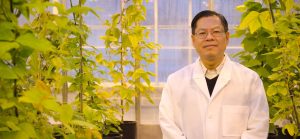
Sep. 9, 2020
Henry Nguyen Named Editor of The Plant Genome
The Crop Science Society of America (CSSA) and the American Society of Agronomy (ASA) recently announced three appointments/reappointments of journal editors. Henry Nguyen, professor in the University of Missouri College of Agriculture, Food and Natural Resources (CAFNR) Division of Plant Sciences, was named the editor of The Plant Genome. “I am honored and inspired to take on a new role as editor of The Plant Genome,” Nguyen said in the announcement. “I was involved in the development of this journal as former chair of the C-7 Division (Genomics, Molecular Genetics and Biotechnology) and have served on the editorial board for…
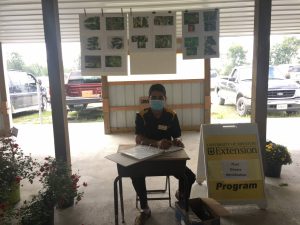
Aug. 31, 2020
Creating Inclusive Programming
On Friday mornings at the Clark Produce Auction, University of Missouri Agriculture and Environment Extension agronomist Dhruba Dhakal sets up a table, plant posters and an MU Extension sign. MU Extension’s objective is to serve all Missourians with resources and research needed to improve lives, communities and the economy. When Dhakal noticed Amish producers in Clark could benefit from a plant diagnostic clinic, he knew there was only one thing to do. “While attending one of the sales, I spoke with some of the leaders in the Amish community and learned they were struggling with different horticultural issues,” Dhakal said.
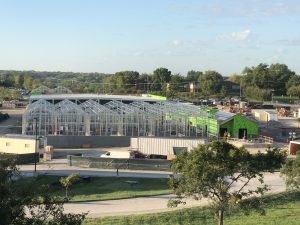
Aug. 28, 2020
IPG Graduate Student and Postdoc Receive Awards for CROPS Seminar Presentations
The regional Collective Research Organization of Plant Scientists (CROPS) virtual seminar series, organized by graduate students and postdocs at the University of Nebraska-Lincoln, took place over the summer, wrapping up the final sessions earlier in August. On Aug. 18, biochemistry PhD student Shannon King and plant sciences postdoctoral fellow Jian Kang received awards for Graduate Student Presentation and Postdoc Presentation, respectively. King, who works in the labs of Scott Peck, Felix Fritschi and Robert Sharp, was awarded first place for graduate student presentation, and Jian Kang in the Robert Sharp and Mel Oliver labs, was awarded third place for Postdoc…
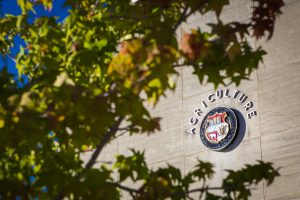
Aug. 25, 2020
CAFNR Welcomes New Faculty
Each fall the College of Agriculture, Food and Natural Resources at the University of Missouri welcomes new faculty members who are ready to immerse themselves in teaching, research and Extension as integral parts of furthering our land-grant mission. Our six new faculty members bring a wealth of knowledge in their respective fields, and will be proudly welcomed into four of our six divisions: Animal Sciences, Applied Social Sciences, Food Systems & Bioengineering and Natural Resources. Our college is proud to introduce the new faculty members joining us for fall 2020: Michelle Brimecombe Assistant Teaching Professor, School of Natural Resources Brimecombe…
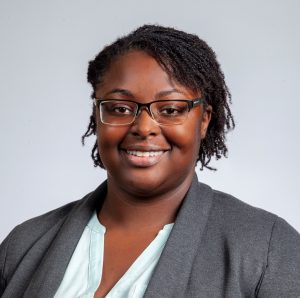
Aug. 20, 2020
Samniqueka Halsey Publishes Letter in Nature Ecology and Evolution
Samniqueka Halsey, assistant professor in the School of Natural Resources and CAFNR Faculty Fellow, is the lead author on a letter published in Nature Ecology and Evolution. “Elevate, don’t assimilate, to revolutionize the experience of scientists who are Black, Indigenous and people of colour” (SharedIt PDF version) outlines suggestions for how minoritized individuals can not only survive but thrive in ecology and evolutionary biology. The letter’s authors, five Black women who started as doctoral students at the same university, used their shared experience to develop a list of eight strategies. The strategies include: expect and use external support,…